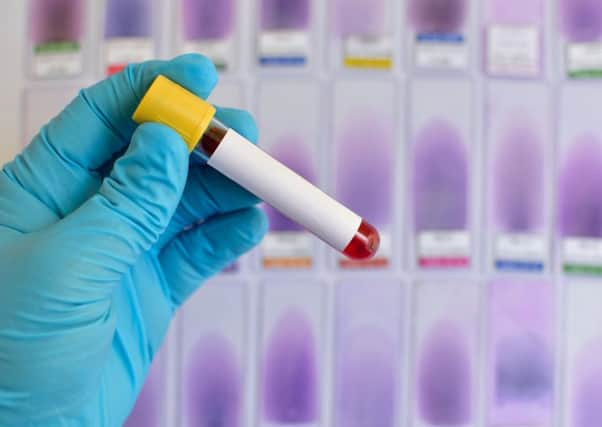Thousands unaware they are living with hepatitis C


An estimated 36,000 people in Scotland are living with the infection, and just under half are not aware of it, according to Hepatitis Scotland.
A new campaign is targeting people who could be at risk, such as those who have tried drugs when they were younger, to come forward for testing.
Advertisement
Hide AdAdvertisement
Hide AdThe latest figures from Health Protection Scotland show 1,800 people were diagnosed with hepatitis C last year but the true figure is expected to be much higher as it can remain undetected for decades.
The infection can lead to serious liver damage if left untreated, and the risks are greatly magnified if coupled with drinking alcohol.
Scottish deaths from chronic liver disease are among the highest in Europe and the annual number with hepatitis C-related end stage liver disease nearly doubled across the last ten years.
Professor John Dillon, a leading hepatitis C expert from Dundee University, said: “If we had efficient diagnosis and sufficient funding then we would be in a position to make Scotland the first country in the world that is completely free of hepatitis C. But it is all about making that first step and getting a diagnosis.
“The virus can lie low in the liver for decades slowly nibbling away without anyone noticing. Then in ten or 15 years it will have destroyed the liver and the patient will have liver failure.”
Tackling the stigma around the disease is an issue, as drugs users are among the most at risk of the blood-borne virus, Prof Dillon added. It can also be transmitted through tattoo equipment or medical procedures. About 2,500 Scots are thought to have been infected by contaminated blood products during the 1970s and 80s.
The majority of cases can be cured using a 12-week programme of tablets, which is available on the NHS.
Grant Sugden, director of the charity Waverley Care, said: “We work with people with hepatitis C every day and have seen how testing and treatment can put people on a path to a healthier future.
Advertisement
Hide AdAdvertisement
Hide Ad“The earlier that people can get tested, the better and if you are diagnosed, support is available. Don’t gamble with your health.”
The Scottish Government has committed to eliminating hepatitis C and increasing the number of people treated.